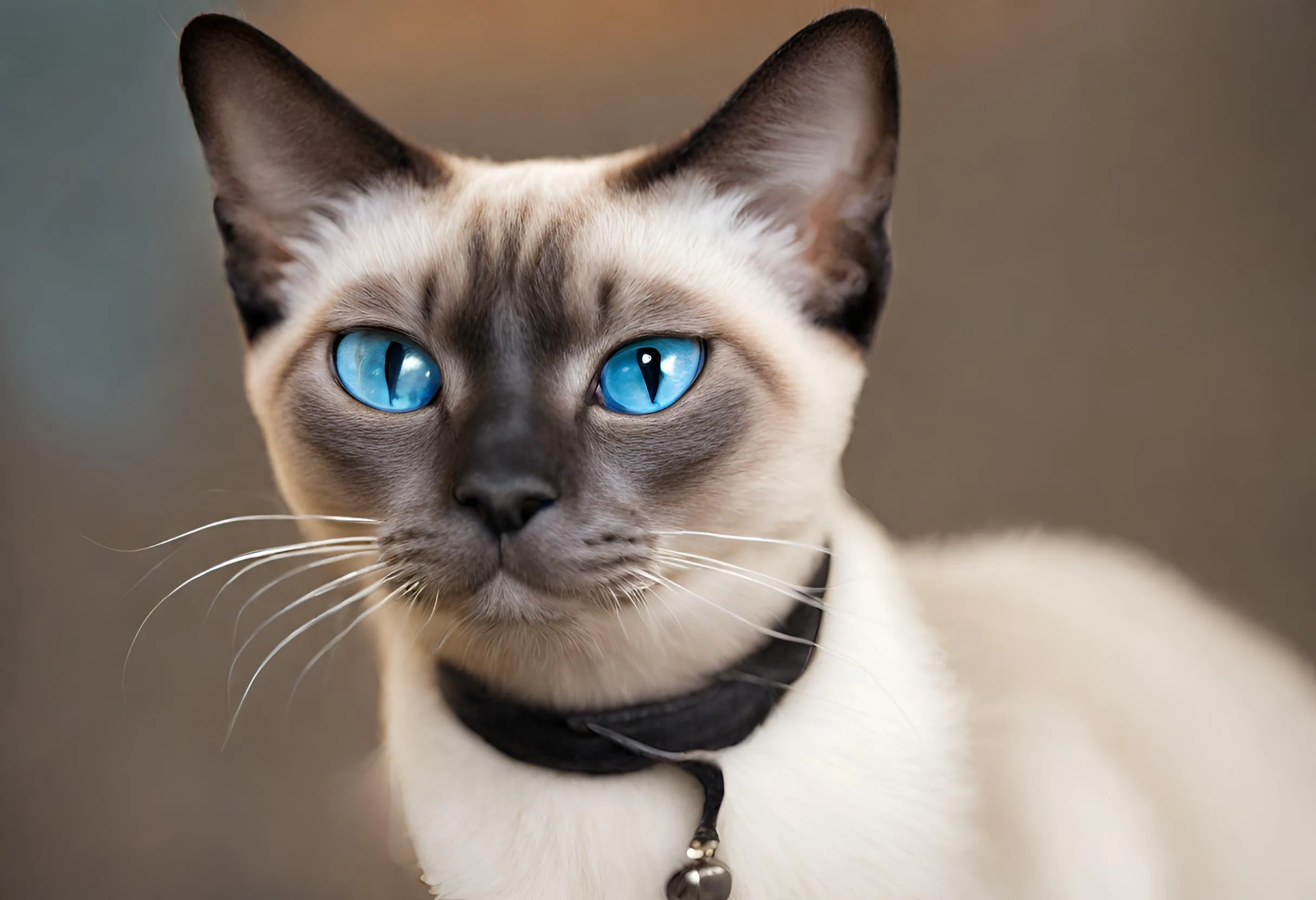Siamese cats are famous for their hanging blue almond-formed eyes, sleek coat, and a vocal range that leaves no words unspoken. Often known as the “puppies of the cat international,” Siamese cats are particularly sociable and express their wishes and emotions through a sequence of charming vocalizations. For those lucky sufficient to share their home with a Siamese pussycat pal, know-how those meows is the key to foster a deep and significant dating. In this blog post, we’ll explore the particular language of Siamese meows and the way to decipher the nuanced messages in the back of this stunning breed’s voice.
Table of Contents
Understanding Siamese Cat Meows
Siamese cats are known for being particularly chatty. Their vocabulary extends beyond the same old ‘feed me’ and ‘puppy me’ and right into a complex system of meows, trills, and purrs. Each meow incorporates a exclusive tone and pitch, which reveals the cat’s emotional state and cause of communication.
The Spectrum of Siamese Meows
Siamese cats have a extensive variety of meows. Some of the commonplace sorts encompass:
Demand Meows: These insistent, loud, and common meows are the cat’s way of telling you to pay interest. It might be associated with a want for food, playtime, or in reality a desire for corporation.
Social Meows: These softer and extra melodic meows are used for greeting you or as an invite to sign up for in their sports.
Anxious Meows: High-pitched and non-stop, those meows are a sign of misery or pain. Your Siamese cat can be in pain or feeling insecure approximately some thing in their surroundings.
Pleasure Meows: Purring is a form of meowing that expresses contentment and happiness. A Siamese cat may integrate purring with meowing when they’re feeling in particular affectionate.
Understanding the context in which the meow occurs is just as important as the meow itself. Paying attention to body language and accompanying behaviors will help you interpret what your Siamese friend is trying to convey.
Communication through Meowing
At the heart of Siamese meows is the choice to have interaction and interact with their human partners. Siamese cats aren’t shy approximately expressing their desires, from looking dinner on the identical time every day to inquiring for help with starting doorways. They see you as a part of their social group and use meows as a manner to preserve this bond.
Environmental Factors and Meowing
A Siamese cat’s surroundings can significantly have an impact on their vocal patterns. Siamese cats are quite touchy to modifications in recurring, and meowing can be their manner of coping with pressure or in search of reassurance.
Changes in the Home Environment
Moving to a brand new house, the creation of recent pets, or the departure of a member of the family can lead to multiplied meowing in a Siamese cat. They can be meowing greater often to specific their confusion or soreness in a new placing. It’s vital to offer a comforting surroundings with acquainted scents and gadgets to assist them acclimate.
The Role of Routine
Siamese cats thrive on routine. They will analyze the family schedule quick and could not hesitate to remind you of feeding or playtime in the event that they feel it is overdue. Meowing may also increase if there are surprising modifications in the daily rhythm.
Health Issues and Meowing

Changes in a Siamese cat’s meowing conduct also can be a signal of underlying fitness issues. It’s important to reveal your cat’s typical vocal conduct and be alert to variations that would indicate a problem.
Dental or Oral Health Problems
Siamese cats are prone to dental troubles which could lead to pain while consuming or drinking. If your cat is meowing more for the duration of meal times or avoids certain sorts of food, it’s critical to look into their mouth and consult a vet.
Hyperthyroidism
This situation can cause excessive hunger and thirst, which is probably expressed via persistent and one of a kind meows than usual. Hyperthyroidism is a common disorder in senior Siamese cats and calls for clinical interest.
Cognitive Dysfunction
Older Siamese cats can also experience cognitive decline, leading to disorientation and multiplied vocalization. This might be a form of ‘calling’ in reaction to feeling misplaced or pressured. A vet can assist manage cognitive problems.
How to Respond to Siamese Cat Meows
The exceptional way to respond to a Siamese cat’s meows is with persistence and commentary. By paying attention to their meows and the scenario to hand, you can better meet their wishes and deepen your bond.
Respond Appropriately
Make positive to respond on your Siamese cat’s meows the proper manner. Ignoring them once they want attention can lead to elevated meowing as they try tougher to speak. On the alternative hand, rewarding them with meals, play, or affection once they meow will toughen this behavior. The key’s to provide the proper reaction to the proper meow.
Set Boundaries
While it is essential to respond in your cat’s meows, it is also crucial to set obstacles. If your cat meows for attention at inconvenient instances, consisting of when you’re napping, working towards constant non-worthwhile responses can assist control their vocal requests without destructive your courting.
Training and Bonding Through Meowing
Training your Siamese cat to meow less at important instances includes a aggregate of interest redirection, effective reinforcement, and ensuring their needs are met.
Using Positive Reinforcement
Reward your Siamese cat with treats, praise, or playtime when they use the desired behavior, such as quiet play or resting contently. They will soon associate this behavior with positive attention, which can help reduce the instance of demanding or unnecessary meows.
Enrichment Activities
Engage your Siamese cat in stimulating activities that provide an outlet for their energy and curiosity. Puzzle feeders, cat trees, interactive toys, and play sessions can reduce meowing by keeping them entertained and mentally stimulated.
Meowing and Bonding
Meowing is a form of interaction and communication. By responding to the sound of your Siamese cat’s voice, you’re actively participating in a dialog that can strengthen the bond between pet and owner.
Conclusion
Understanding the meows of your Siamese cat is not just about spotting their want for meals or interest. It’s a gateway to a richer relationship where communique is two-manner. By listening to their vocalizations, you may ensure a harmonious environment in your Siamese friend, bonding with them in approaches that words could never allow. Enjoy the never-ending communique with your chatty feline accomplice and proportion in a language it’s precise to the each of you.
Share your Siamese cat’s meowing tales and the ways you’ve found out to communicate with them. How have you deciphered the Siamese meow? What strategies have you used to manage their vocalizations or respond to their wishes? Your reviews should help other Siamese cat owners enrich their own relationships with their bushy talkative circle of relatives individuals.
Read more interesting articles about Siamese, visit our website factivaa.com.
FAQs
Why does my Siamese cat meow so much?
Siamese cats are naturally vocal and use meowing as a primary means of communication with their humans. This behavior is accentuated by their social nature, need for attention, changes in environment, or even health issues.
Can I train my Siamese cat to meow less?
Yes, through consistent training and positive reinforcement, you can encourage quieter behavior. Focus on rewarding your cat when they are quiet and engaging in enrichment activities to keep them stimulated and content.
Are there specific times when a Siamese cat’s meowing should concern me?
If there’s a sudden increase in meowing or if the tone, frequency, or pattern changes significantly, it might indicate health issues or stress. Pay attention to other signs such as changes in appetite, behavior, or routine, and consult a veterinarian if concerned.
How do I differentiate between my Siamese cat’s meows?
Over time, you may notice variations in pitch, length, and tone of your cat’s meows, which can help you distinguish between a meow for food, attention, or even discomfort. Observing the circumstances under which different meows occur can also provide clues.
Can older Siamese cats develop issues that affect their meowing?
Yes, older Siamese cats may face conditions like cognitive dysfunction which can lead to increased vocalization. It’s crucial to monitor any changes in meowing patterns as cats age and consult a vet for advice on managing age-related conditions.
By understanding and appropriately responding to your Siamese cat’s vocalizations, you create a deeper and more meaningful companionship with your pet, ensuring their well-being and happiness.

